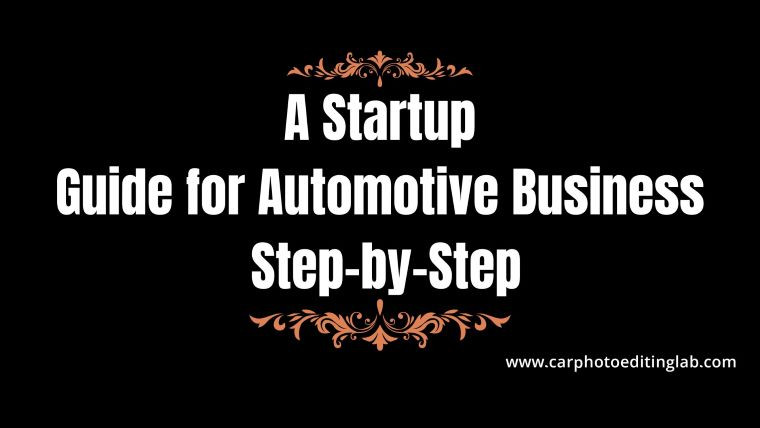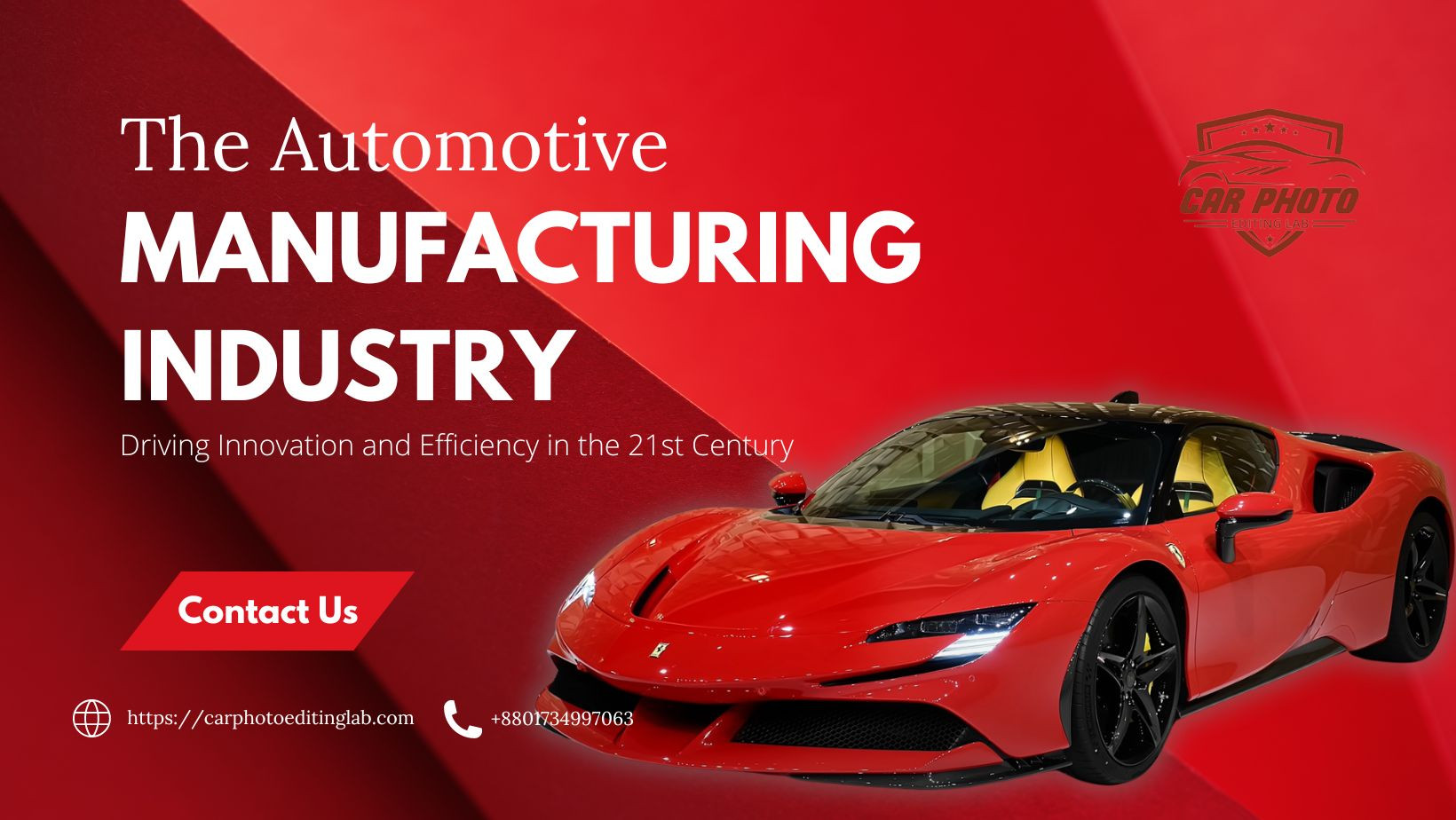-
Contact us with Whatsapp:
+8801734997063 -
Mail Us:
[email protected] -
Service Hours
24/7
How to Start an Automotive Business: A Startup Guide, Step-by-Step

Feb 2024
- 02 Feb 2024
- Business Solution
- 0 Views
How to Start an Automotive Business: A Startup Guide, Step-by-Step
Embarking on the journey to start an automotive business can be a thrilling venture, offering opportunities to merge passion for automobiles with entrepreneurial ambition. Whether your dream involves opening an auto repair shop, a car dealership, or venturing into innovative automotive services, this step-by-step guide is crafted to guide you through the intricate process of launching and growing a successful automotive enterprise. In a world where mobility is a cornerstone of modern life, the automotive industry continues to evolve, presenting a myriad of possibilities for aspiring business owners. This guide aims to demystify the complexities of starting an automotive business, providing you with a roadmap to navigate the challenges, capitalize on opportunities, and establish a robust foundation for sustainable growth.
Market Research
Market research is essential for launching a successful automotive business, providing valuable insights into consumer preferences, trends, and competition. By conducting thorough market research, businesses can identify potential niches, understand target demographics, and tailor their products or services accordingly. Analyzing competitors helps in positioning the new automotive business strategically and identifying unique selling points. Additionally, market research helps in gauging the demand for specific features or technologies, allowing businesses to stay ahead of industry innovations. Overall, a comprehensive market research strategy is crucial for making informed decisions, mitigating risks, and establishing a solid foundation for sustainable growth in the competitive automotive industry.
Business Plan
Creating a business plan is crucial when starting an automotive business as it serves as a roadmap for success. The plan should include a detailed analysis of the market, outlining target demographics, industry trends, and potential competitors. A comprehensive business plan should also outline the specific products or services the automotive business will offer, along with pricing strategies and sales projections. Financial projections, including startup costs and revenue forecasts, are essential for attracting investors and securing funding. Additionally, a well-crafted business plan should outline the organizational structure, marketing strategies, and operational plans, providing a holistic view of how the automotive business will thrive in the market.
Legal Structure and Registration
Choosing the right legal structure is crucial when starting an automotive business, impacting liability, taxation, and regulatory compliance. Common structures include sole proprietorships, partnerships, LLCs, and corporations, each with its own set of legal implications. Registering the business with the appropriate authorities is essential to ensure compliance with local, state, and federal regulations. This typically involves obtaining the necessary licenses and permits, such as those related to automotive sales or repairs. Proper legal structure and registration not only safeguard the business but also contribute to its credibility, building trust with customers, suppliers, and potential investors. It is advisable to seek legal counsel to navigate the complexities and ensure the automotive business operates within the bounds of the law.
Location
Selecting the right location is a critical decision when starting an automotive business. Proximity to potential customers, suppliers, and complementary businesses can significantly impact the success of the venture. Accessibility and visibility play crucial roles, especially for retail-focused automotive services, ensuring ease of customer reach and attracting walk-in traffic. Additionally, considering zoning regulations and local ordinances is essential to ensure compliance with land-use policies. Evaluating the overall economic environment of the chosen location, such as demographic trends and market demand, helps in making informed decisions that contribute to the long-term viability and profitability of the automotive business.
Equipment and Suppliers
Acquiring the right equipment is pivotal when launching an automotive business. Depending on the specific focus, whether it's automotive repair, customization, or sales, the choice of tools and machinery directly impacts operational efficiency. Establishing reliable relationships with reputable suppliers is essential to ensure a steady and quality supply of automotive parts, accessories, and materials. Negotiating favorable terms and prices with suppliers contributes to cost-effectiveness and enhances overall profitability. Regularly assessing and updating equipment to incorporate technological advancements is crucial to staying competitive and meeting industry standards in the dynamic automotive sector. Careful consideration and selection of equipment and suppliers are key components in establishing a robust foundation for a successful automotive business.
Insurance
Securing comprehensive insurance is imperative when initiating an automotive business. Insurance coverage should include protection for property, equipment, and inventory, safeguarding against potential damages, theft, or unforeseen events. Liability insurance is essential to protect the business from potential lawsuits arising from accidents, injuries, or property damage on the premises. Specialized insurance tailored to the automotive industry, such as garage liability insurance for repair shops or product liability insurance for manufacturers, is vital for addressing industry-specific risks. Adequate insurance coverage not only provides financial protection but also instills confidence in customers and stakeholders, demonstrating a commitment to responsible business practices. Regularly reviewing and updating insurance policies ensures that the automotive business remains adequately protected against evolving risks and industry challenges.
Financing
Securing adequate financing is a critical step in launching an automotive business. Determining the startup costs, including facility setup, equipment acquisition, and initial inventory, is crucial for establishing a realistic financial plan. Entrepreneurs can explore various financing options, such as bank loans, Small Business Administration (SBA) loans, or seeking investors, to meet the capital requirements. Creating a detailed and comprehensive business plan can enhance the prospects of securing financing by showcasing the business's viability, potential for growth, and clear repayment strategies. Regularly monitoring and managing cash flow is essential for sustaining day-to-day operations and repaying any loans, ensuring the financial health and long-term success of the automotive business.
Brand Development
Building a strong brand is essential for the success of a new automotive business. The brand should reflect the business's values, mission, and unique selling proposition, creating a distinct identity in the competitive market. A well-designed logo, consistent visual elements, and a compelling brand message contribute to a memorable and recognizable brand image. Implementing effective marketing strategies, both online and offline, helps in promoting the brand to the target audience and establishing a strong market presence. Engaging with customers through social media, community events, and other channels fosters brand loyalty, creating a positive reputation that is crucial for the sustained growth and success of the automotive business.
Website and Online Presence
Establishing a robust online presence is paramount for a new automotive business. A professionally designed website serves as a virtual storefront, providing potential customers with essential information about products, services, and contact details. Implementing search engine optimization (SEO) strategies enhances the visibility of the website, ensuring it ranks higher in search engine results, thereby attracting more organic traffic. Utilizing social media platforms and maintaining active profiles helps in connecting with the target audience, sharing updates, and building a community around the automotive brand. E-commerce capabilities on the website, if applicable, facilitate online transactions and broaden the customer base, contributing to the overall success and competitiveness of the automotive business in the digital age.
Staffing
Careful staffing is crucial when initiating an automotive business. Employing skilled and knowledgeable staff, including mechanics, sales personnel, and administrative staff, ensures the delivery of high-quality services and positive customer experiences. Training programs and continuous education opportunities contribute to a skilled and motivated workforce, enhancing overall operational efficiency. Establishing clear roles and responsibilities within the team promotes effective communication and a well-organized workflow. A positive and collaborative work environment fosters employee satisfaction, reducing turnover and contributing to the long-term success of the automotive business.
Services and Pricing
Defining a comprehensive range of services is essential when launching an automotive business, encompassing repair, maintenance, customization, or sales depending on the business model. Clearly articulating these services in marketing materials and on the business website helps potential customers understand the offerings. Establishing competitive yet profitable pricing strategies requires careful consideration of industry standards, local market conditions, and the perceived value of services provided. Offering transparent pricing structures and occasional promotions can attract customers and build loyalty. Regularly reviewing and adjusting service offerings and pricing models based on customer feedback and market trends helps in maintaining relevance and competitiveness in the dynamic automotive industry.
Compliance and Regulations
Adhering to compliance and regulations is paramount for a new automotive business to ensure legal and ethical operations. Familiarizing oneself with local, state, and federal regulations regarding automotive sales, repairs, and environmental standards is crucial for avoiding legal issues. Obtaining the necessary licenses and permits is an essential step in compliance, demonstrating the business's commitment to operating within the legal framework. Implementing workplace safety measures and environmental practices not only align with regulations but also contribute to a positive corporate image. Regularly monitoring and updating practices to stay abreast of evolving regulations is essential for the sustained success and reputation of the automotive business.
Customer Relationship Management (CRM)
Implementing a robust Customer Relationship Management (CRM) system is vital for a new automotive business. This tool allows for the effective organization and management of customer interactions, facilitating personalized services and building lasting relationships. A CRM system enables businesses to track customer preferences, purchase histories, and feedback, helping to tailor offerings and enhance the overall customer experience. Integrating CRM into marketing strategies allows for targeted communication, promotions, and loyalty programs, fostering customer retention. Regularly updating and utilizing CRM data empowers the automotive business to adapt to changing customer needs and preferences, ensuring long-term satisfaction and loyalty.
Launch and Marketing
A strategic and well-executed launch is crucial for the success of a new automotive business. This involves creating a comprehensive marketing plan that includes online and offline strategies to generate awareness and attract customers. Utilizing social media platforms, automotive forums, and targeted advertising helps in reaching the target audience effectively. Hosting launch events, promotions, and collaborations can create buzz and draw attention to the business. Continuous monitoring of marketing metrics and customer feedback during the launch phase allows for adjustments and improvements, ensuring a successful introduction of the automotive business to the market.
Continuous Improvement
In the dynamic automotive industry, embracing a culture of continuous improvement is essential for the long-term success of a new business. Regularly evaluating and refining operational processes enhances efficiency and reduces costs, contributing to overall profitability. Soliciting feedback from customers, employees, and stakeholders provides valuable insights that can be used to enhance products, services, and customer experiences. Staying abreast of technological advancements and industry trends ensures the business remains competitive and adaptable to changing market dynamics. Implementing a system for ongoing training and development helps keep the workforce skilled and motivated, fostering a culture of innovation and improvement within the automotive business.
Conclusions
In conclusion, launching a successful automotive business necessitates meticulous planning, market research, and a clear understanding of industry dynamics. Crafting a comprehensive business plan is crucial, serving as a roadmap for financial management, marketing strategies, and operational efficiency. Embracing technological innovations and staying attuned to industry trends are key factors in staying competitive. Building strong industry relationships through networking and prioritizing exceptional customer service further contribute to long-term success. Ultimately, flexibility and adaptability are essential traits for navigating the dynamic landscape of the automotive industry and ensuring sustained growth.
























0 Comment